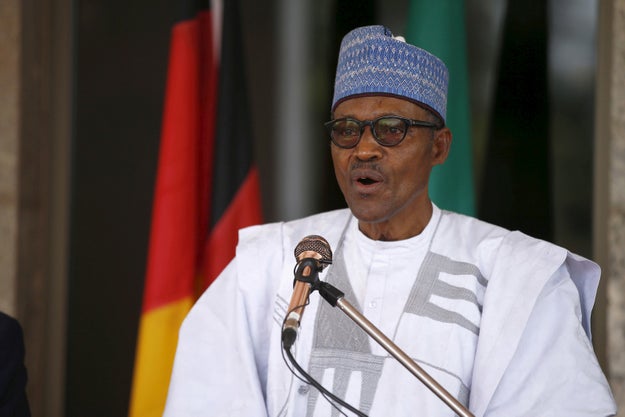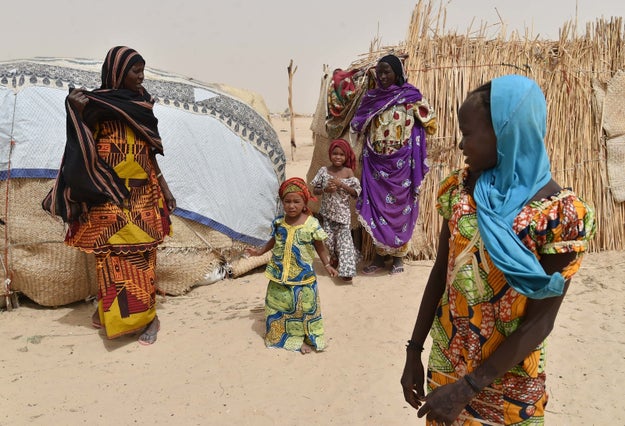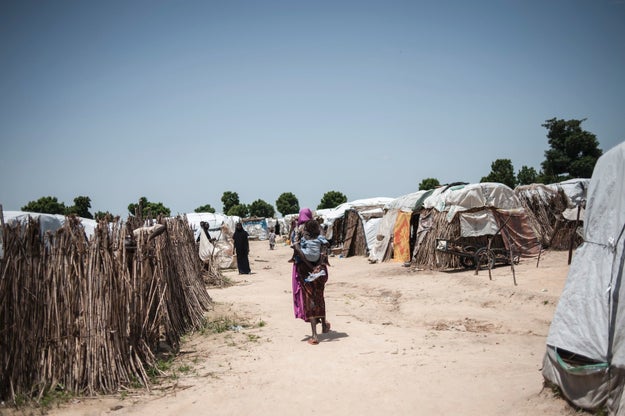Nigerian President Promises Investigation Into Officials’ Abuse Of Boko Haram Victims
A new report from Human Rights Watch said nearly 50 women who fled Boko Haram were abused by officials.
A new report that accuses Nigerian officials of abusing women fleeing Boko Haram are “deeply disturbing” and will be investigated, Nigeria’s president said on Monday.

Afolabi Sotunde / Reuters
The report from Human Rights Watch (HRW) says that nearly 50 women who fled Boko Haram have been mistreated by the officials in charge of the camps housing them.

Issouf Sanogo / AFP / Getty Images
The abuses the human rights group documented in July 2016 took place at the seven camps near the city of Madiguri in northeastern Nigeria’s Borno state. Borno has borne the brunt of the internally displaced people (IDPs) fleeing Boko Haram, with an estimated 1.4 million people displaced at the end of the last year.
According to HRW, the vast majority of the cases in the camps — 37 out of 43 — saw male officials coercing women and girls into sex “through false marriage promises and material and financial assistance.”

Stefan Heunis / AFP / Getty Images
“A woman […] said residents get only one meal a day,” one anecdote in the report reads. “She said she accepted the advances of a soldier who proposed marriage because she needed help in feeding her four children. He disappeared five months later when she told him she was pregnant.” According to HRW, the pattern of abandoning women once they were pregnant was one that saw frequent repetition in the camps.
The report also accuses the Nigerian government of restricting the movement of people in and out of the camps, raising the need for women to turn to officials for sex to survive.

Stefan Heunis / AFP / Getty Images
“For the past three days we have not eaten because there is no firewood to cook the food,” one woman told HRW. “To make it worse, they will not even allow us to go out to fend for ourselves. Most times you have to beg the camp officials to intervene with the guards before they will give you the pass to go out. Why will you refuse if any of those people ask you for marriage? You have to survive.”
The conditions in the camps are bad enough that Doctors Without Borders found last month they now pose a greater risk to IDPs than violence from the militants.

Aminu Abubakar / AFP / Getty Images
In Maduguri, where there is no violence and aid agencies have had access for two years, malnutrition rates are as high as in some global conflict zones. In another camp outside the capital, they found one in 10 children was at risk of starving to death, while in yet another camp people had less than half a liter of water per day, all of which exacerbates the odds of women turning to providing their bodies in return for aid.
Human Rights Watch’s charges were enough to prompt a response from the official Twitter account of Nigerian President Muhammadu Buhari.
Buhari had made defeating Boko Haram a cornerstone of his presidential campaign in 2015, alongside rooting out corruption in the Nigerian government.

Philip Ojisua / AFP / Getty Images
The efforts to eradicate the group — which has at times had links to al Qaeda and ISIS — have not proven fully successful, despite Buhari calling the militants “technically defeated” in December of last year. The Nigerian army, in the meanwhile, has been accused of multiple instances of war crimes and other human rights abuses in its pursuit of Boko Haram.

Philip Ojisua / AFP / Getty Images
“Although we did not provide full details of the interviews, we had sent a summary of our findings to his government after completing the research,” she continued. “His minister of women affairs reached out to us with a promise to investigate, which we know she did carry out but never got back to us. My own suspicion is that her findings were quite close to ours. She possibly did not share with the President the type of details contained in our release hence his apparent concern and dismay.”

0 comments:
Post a Comment